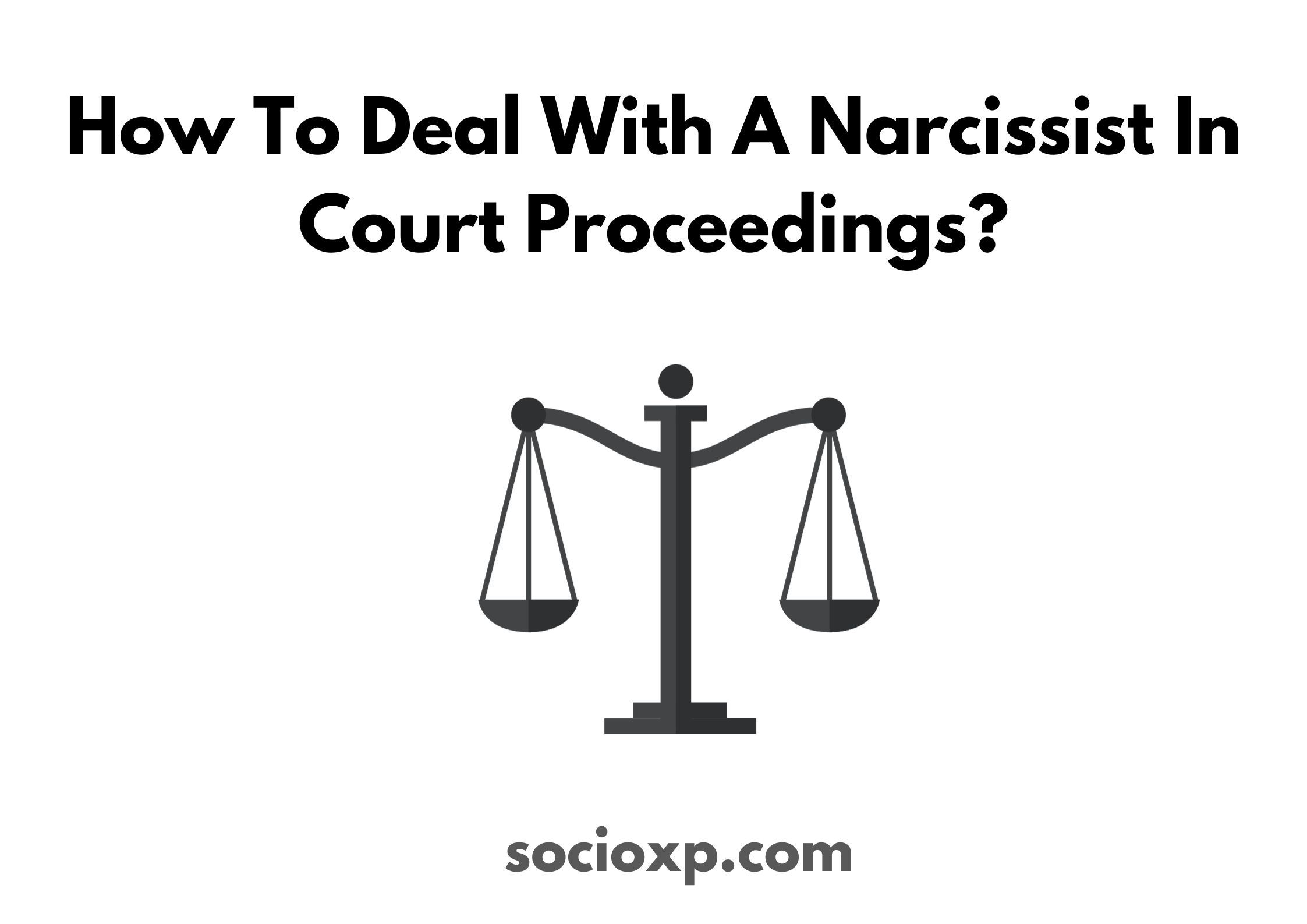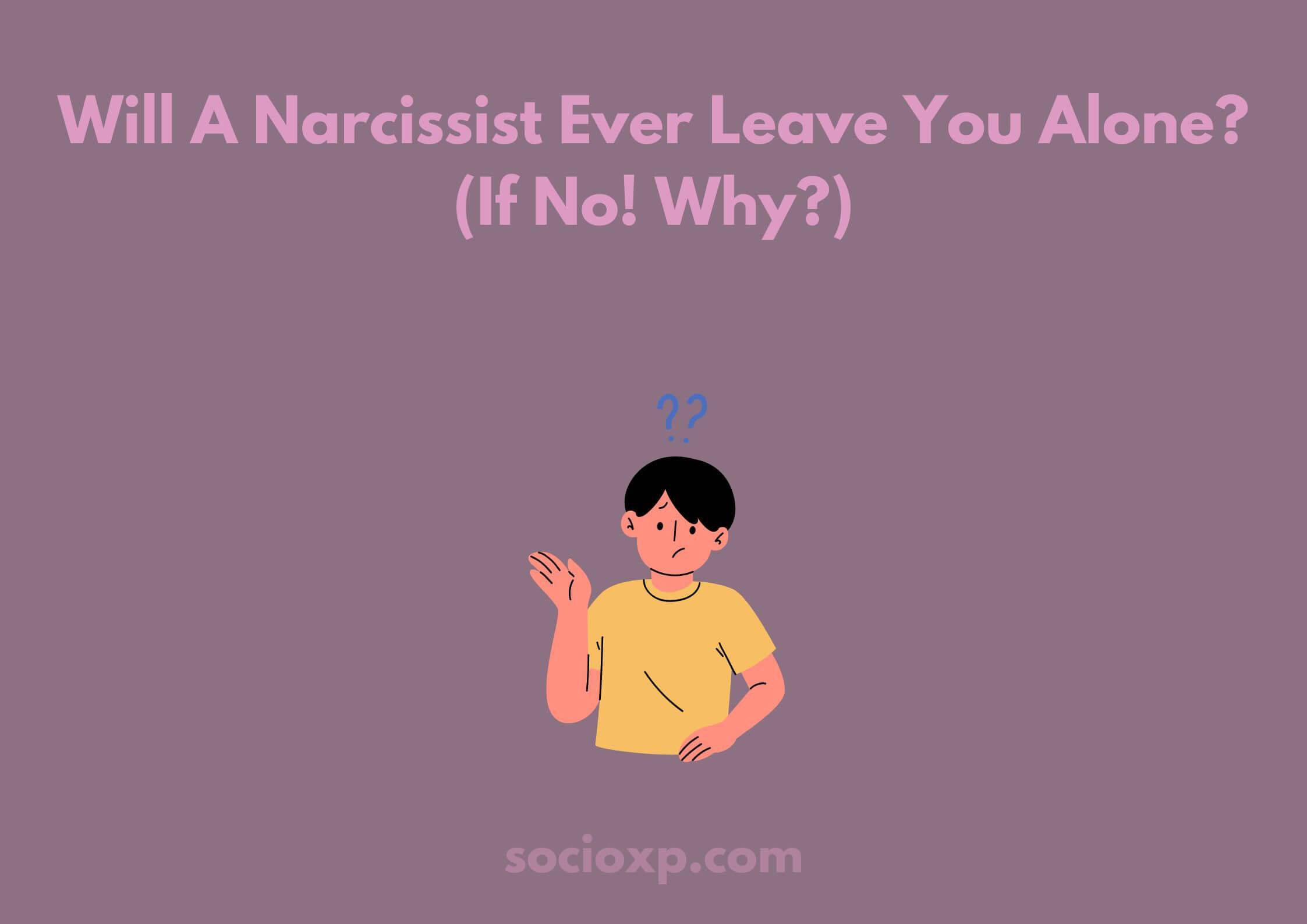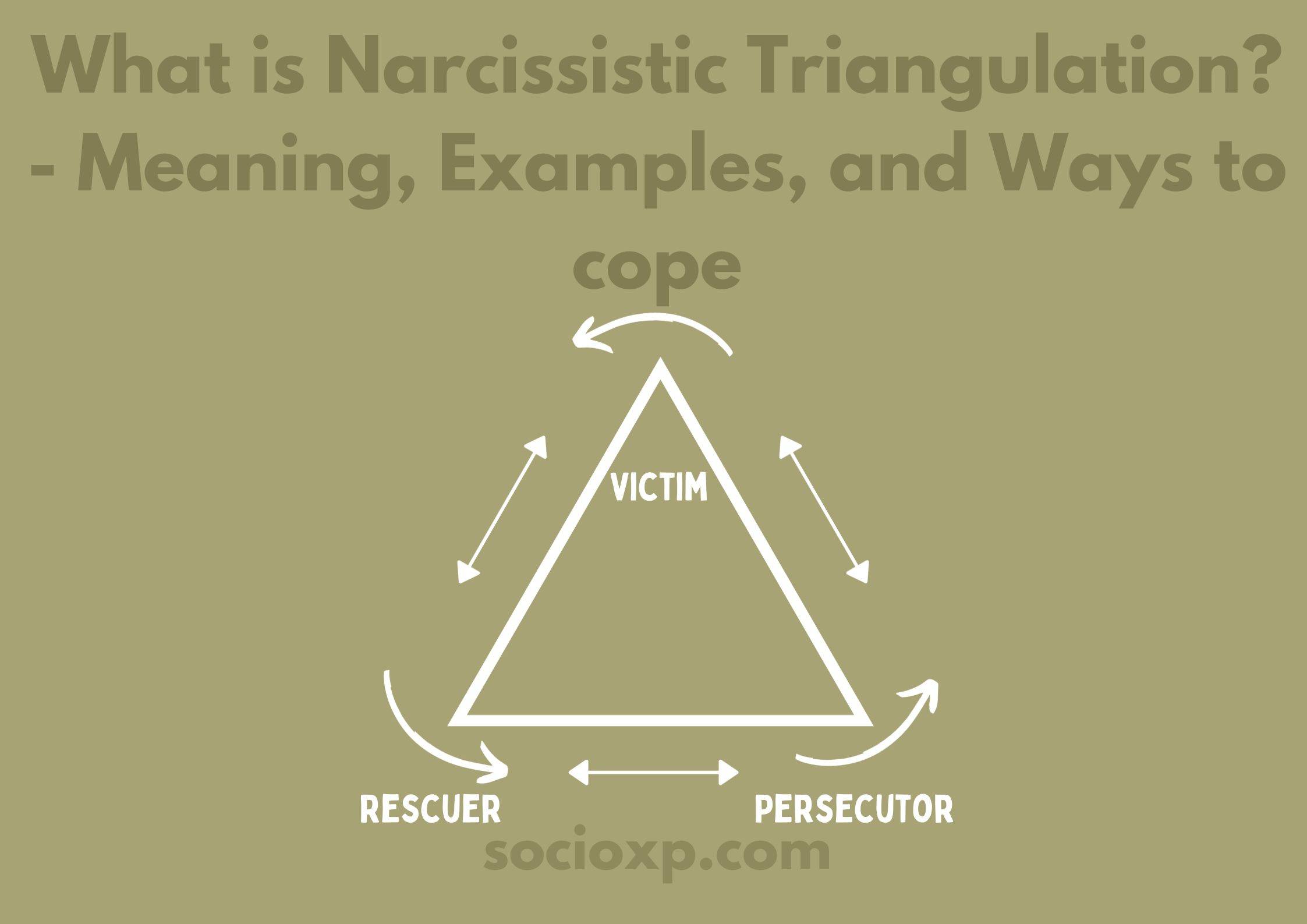Should You Tell A Narcissist They Are A Narcissist?
Should you tell a Narcissist they are a Narcissist? There are always different opinions regarding this question. Some people believe that narcissists deserve to know what they are, and some people feel the need to just bear with the narcissist rather than confront them and bear the aftermath.
If you are stuck with the same question, leave your dilemma here as this article provides the opinion based on what experts suggest. According to the expert opinion, here are a few things you must consider before making up your mind whether to confront the narcissist or maybe delay it!
Narcissists do not think before they act. Their actions may cause nasty consequences and may harm other people’s well-being, yet they are never mindful of their actions. These actions may cause severe damage to others. Thus people have a choice here, whether to bear their actions and be in pain or confront them and take charge of the situation!
So if you are dealing with someone who you might think is suffering from a narcissistic personality disorder, then your first wish would be to confront them. But does confrontation solve everything?

Let us understand it through an example,
Suppose a person who has a narcissistic partner would constantly be stuck in an abusive relationship. The line between a healthy relationship and an abusive relationship would soon start to fade away. They would not be able to understand that they are stuck in a toxic relationship unless someone makes them realize the truth or they realize it themselves. So once they come to a realization, their first step would be to confront the narcissist and ask for explanations for their nasty actions.
They would want to confront their narcissistic partner who and exactly what they are, and why are they abusive. Everyone expects the partner to change, but remember here, that narcissists do not change. They would rather manipulate their partners by guilt-tripping, gaslighting, abusing, and denying the truth of their personality rather than accepting and trying to improve themselves.
So would it be worth confronting them? Should you tell a Narcissist they are a Narcissist? – Let us know further, but first let us understand, where the urge to confront them emerges.
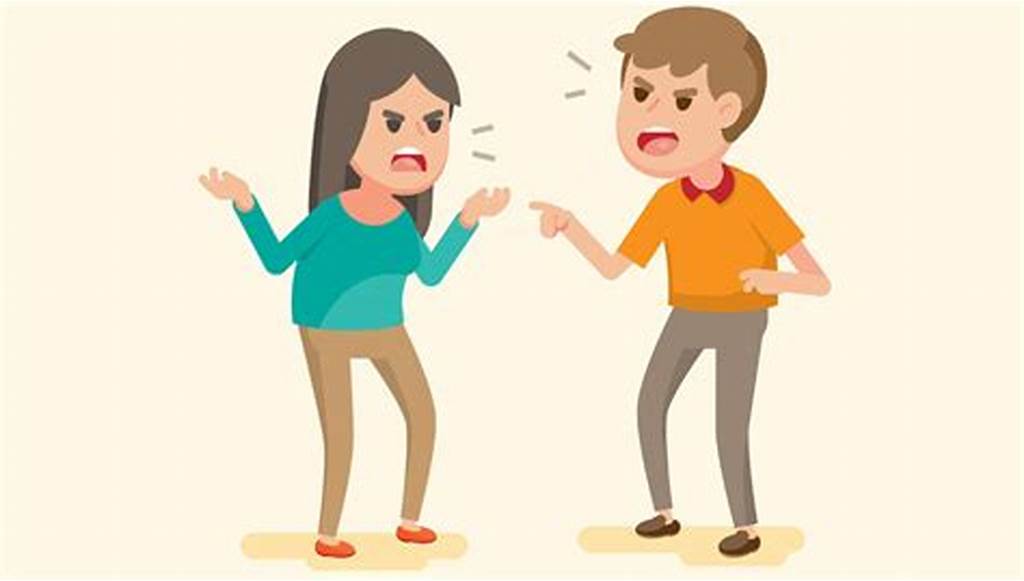
Why would people have the urge to confront the Narcissist?
The most common reason why you would confront a narcissist can be due to the frustration, stress, and suffering you might have faced by being with them. Every person would have different reasons for why they wish to confront the narcissist in their lives, but the most generic urges are mentioned below,
- Knowing the truth may help you to get even with them
- Knowing the truth can set them free
- To help them understand their toxic behavior and why they are like this to others
- So that they can take responsibility for their behavior
- To hurt the narcissist
- To give them a chance so that they can take a step towards changing their behavior through this
- To regain your power and control from the narcissist
When you have someone abusive or narcissistic around you, be it your partner, friends, family, or anyone close to you, your primary urge would naturally be confronting them about this. You may have dialogue prepared in your mind like,
“Do not always hide behind your fake self after hurting me.
Your low self-esteem does not even allow you to feel guilty about your abusive actions.
You need constant attention and validation to sustain your grandiose self.
Your actions have led you to be alone in life because nobody can tolerate that temper of yours.
Just because you are a narcissist does not give you the right to treat everyone as you wish.
“Your lack of empathy is one of the reasons why you lack emotions that can make relationships stronger.”
You might be eager to say all this to the narcissist, but it is worth taking this trouble? Does this work? – Well, all narcissists have different personalities, so depending upon that and the kind of bond you have with them, the outcomes may vary when you confront them or may be planning to do so.

Can you tell narcissists they are narcissists?
The answer to this question is A BIG YES! You can tell them that they are narcissists, but the main question here is “Will they listen to you? “Will they react positively and try to change? “Will there be any negative outturns to it?”. All these questions should be bothering you at this point.
Narcissists do not acknowledge their toxic and abusive behavior and thus they would try to prove you wrong or even get angry at you for accusing them of all that they are not. They often turn a blind eye to the consequences of their behavior.
They do not realize that they are wrong or their unconscious actions may be troublesome for you. Most narcissists do not realize why they are doing so and what is the cause of their abusive actions. They do not acknowledge the fact that their behavior can cause trouble too!
As far as the narcissists are concerned, they are the victims of most concerning issues. They are skilled manipulators and thus they are experts at blame-shifting. Their actions may also be consequences of someone else’s fault.
Generally, when you accuse someone of something, they might be embarrassed and try to improve, but not with narcissists. They may be in their rebellious phase and might deny instantly that they are suffering from Narcissistic Personality Disorder. They may act outrageously. They may also give statements,
“Right! Now I am unwell mentally, and there is no problem with you.” – They may state that you may have some problem as you are pointing a finger at them.
“I should be thanking you for bringing this to my notice.” – FYI – They may be saying this as a taunt.
“Oh! I lack somewhere, I should be taking therapies to make me complete once again, right?” – A Rhetorical Question.
“If I get better I may contact you otherwise this is the time where we should maintain distance as I am troublesome.” – Also a taunt.
Unfortunately confronting them may or may not backfire on you, as we do not live in an ideal world but in a world with increasing narcissists with each passing day. Narcissists would be quicker than lightning to deny the accusations rather than blame you for accusing them. ‘They can also accuse you of being narcissistic as you are the one that sees trouble in everyone. They may blame you for saying so!
Thus this does not even mean, that you should not confess. You must do it at your risk or after you have strong support in the form of your friends, family, or therapists who may be in your support no matter what. Take your stand and confront what you feel about their toxic personality.
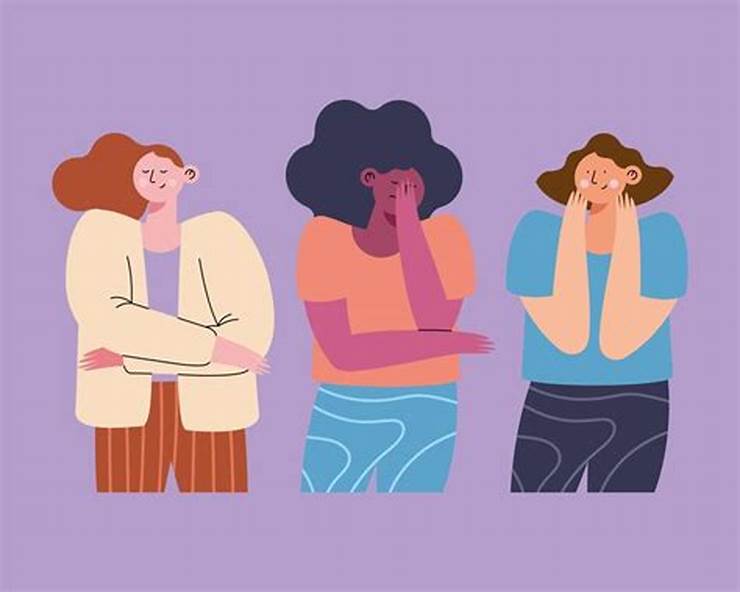
Should you tell a Narcissist they are a Narcissist?
Narcissists would never agree that they lack or are suffering from a mental illness disorder. They would never accept that they are in the wrong, or would never accept their fault. They do not realize the trouble they are causing you, also they do not acknowledge that they are causing trouble.
This would put you in a spot where you have two choices, either accept the blame yourself as they would be blame-shifting you, or just leave the thought of confronting a narcissist. They would always play the victim and would blame you for their nasty behavior. They would blame you for instigating such behavior upon you.
Narcissists deny the blame when you confront them. They might even happily accept the fact when you blame them for being narcissistic, and may also take pride in being more powerful than others as they see themselves as superior to others. Thus these are a few possibilities for a narcissist’s response when you confront.
Pros and Cons of Confronting a Narcissist
Let us look at the positives and the negatives of confronting a narcissist,
The Pros
- There is a minutest chance that they might change their behavior if you hold any importance in their life, or they have not yet benefitted from you completely.
- If you have already decided to part ways with the narcissist, then this might be your first towards the change.
- Confronting a narcissist may be beneficial to both, you and to them. For you, it might give a feeling of contentment that you were able to state the reasons for their toxic behavior. For them, it might be eye-opening as they might not be aware completely or hesitate to believe that they might be suffering through any mental health issue. This might be one of the ways to bring their attention to their mental health issue and present it.
- By confronting you might be able to understand their point of view also, through the counter-arguments they might present for the confrontation.
- To show them the path to change. Out of genuine care and concern, you might wish from the bottom of your heart that they might change if you confront them.

The Cons
- They might not even feel the need to change, and your moment might completely get lost in their neutral response.
- The most expected and go-to defense mechanism for narcissists is gaslighting their victims into believing what they want them to believe. So when you figure out a narcissist, their first reaction or action would be gaslighting as a part of their defense and make you believe that you are the narcissist here, and they are the victim.
- A confrontation may give a boost to providing the narcissist with their dose of narcissistic supply. This would prove that they can affect you and this might boost their power.
Should you tell a narcissist they need help?
Some narcissists may take it upon themselves and decide to give it a try to change themselves. If not actions, at least the thought of being a better person may at least cross the mind for once. But not for all narcissists.
Some narcissists may totally deny the fact that they have some kind of mental disorder and they should seek treatment. Even if it is the best for them, they would deny it bluntly.
This is not the time to lose hope, as there are a few successful cases where the narcissists might accept their shortfall and may decide to work on themselves.
Self-awareness and seeking help from professionals by being aware is the first steps toward change. But how good are narcissists at being self-aware?
A Quick Questionnaire for narcissism and self-awareness
Here is a quick question-answer session for you to understand the connection between narcissism and self-awareness,
Do Narcissists know they are narcissists? – Yes in some cases they may be aware that they are the abusers but would not know the reason behind it.
Do narcissists feel guilt? – Yes they do feel the guilt but are less likely to show it through their behavior. It is not necessary that all narcissists may be ingenuine and not feel regret, shame, or guilt. Some may feel those emotions but struggle to display them while some would shut these emotions behind their defense mechanism.
Do narcissists cry? – Yes! they may cry when extremely hurt or upset.
Do narcissists know they hurt you? – Narcissists do realize that their behavior is causing harm to others but somehow they would cover it up or rationalize it.
Do Narcissists feel emotional pain? – After narcissists are humans, so they would act like humans! Their monstrosity may cause destruction but they do feel emotional pain. They might not understand what is so upsetting and why they feel so heavy-hearted but they do feel pain.

How can you help the Narcissist?
Before answering the main question that may cross your mind is “Will the narcissist accept help from you?”
In some cases, they might accept or even ask for help but this may be a rare scenario, where the regret is real and they feel a need to change to sustain their relationship.
Otherwise, remember this one thing firmly this journey or path of helping the narcissist with or without their will no matter what is going to be a tough road full of hurdles and may also affect your relationship.
So when you decide to help them you must,
You must acknowledge yourself regarding narcissism first of all.
Have strong back support that may include your family friends or anyone willing to support you no matter what
Use simple language when you confront
Also, ensure you have strict boundaries and they are not being broken by the narcissist
If it takes a toll on your mental, physical, and emotional health you may drop the idea or leave the narcissist.
Important Takeaway
Choose whatever suits you better based on the characteristics and personality of the narcissist in your life.
If you are determined to expose the narcissist, then take a pause, breath, and relax as it might help you to think better and harder. While dealing with narcissists, may backfire on you and may cause you even more emotional trauma than the narcissist has already caused you.
There is always a silver lining on every cloud, so do not leave hope and believe that the narcissist might change gradually if you truly love them. So try giving them a chance, and sources like therapies, self-help books, and your love, patience, and support.
What if they wish to change miraculously and your life may get better with them, without taking any serious measures?
- How To Make A Narcissist Discard You And Leave You Alone? - March 21, 2024
- Narcissistic Supply: 9 Signs You May Be Someone’s Narcissistic Supply - March 11, 2024
- Narcissistic Abuse And Anxiety – 11 Symptoms of Narcissistic abuse-induced anxiety - March 9, 2024
